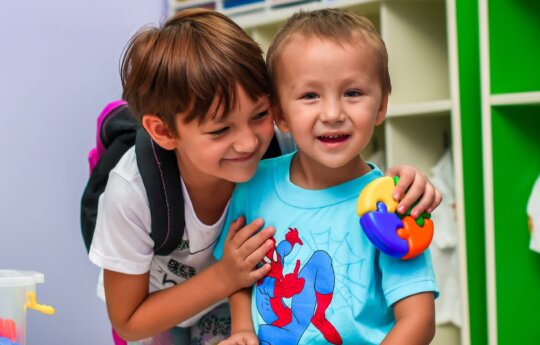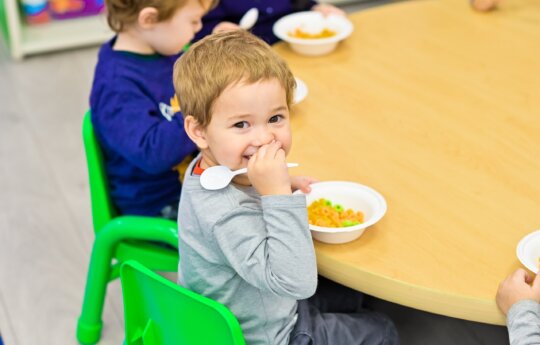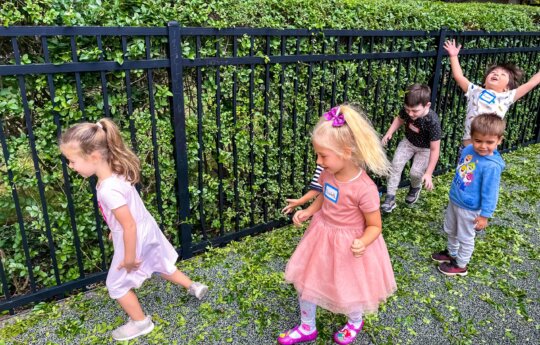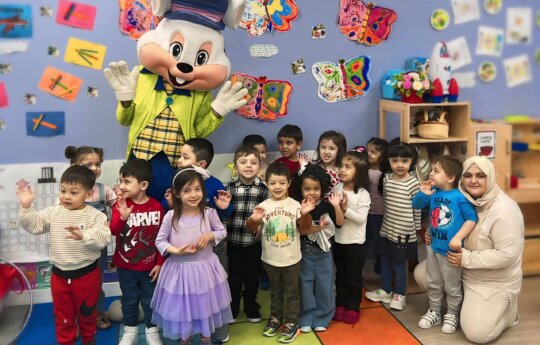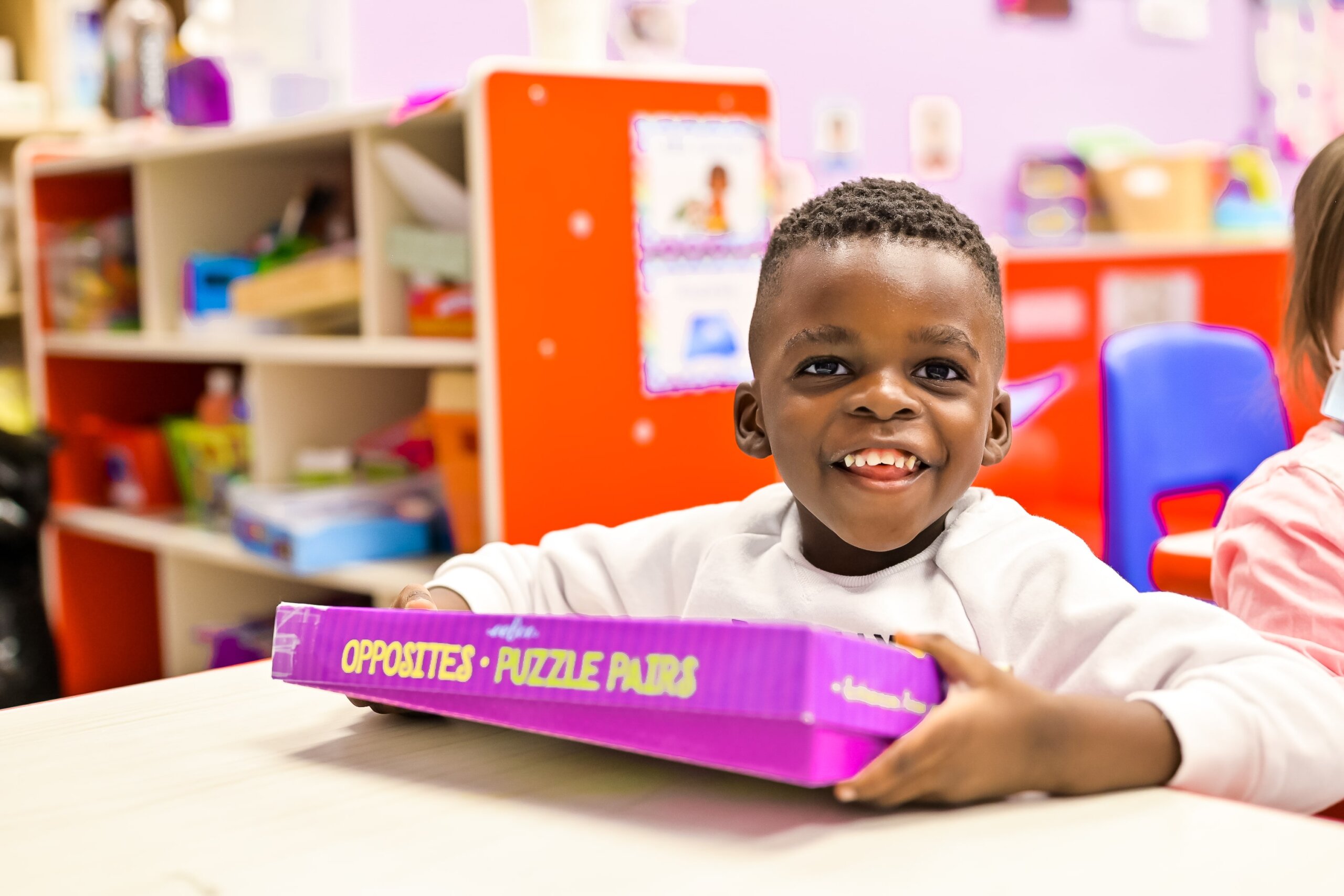
During a child’s formative years, self-esteem is far more than just a popular buzzword – it is an essential building block of healthy development. By definition, self-esteem that applies to young children is a way they perceive their value and on what kind of comfort in the world around them they rely. It influences how they understand themselves now and later in life when they face new conditions and experiences. Therefore, from an early age, it is vital to nurture self-esteem in young children. Children who have a strong sense of self-worth find it easier to get along with others, handle and overcome challenges, and advance their development.
The purpose of this article is to explore various strategies and activities that caregivers and educators can use to create a proper nurturing environment that facilitates the development of self-esteem in young children and helps prepare for their journey of growth and self-discovery.
Self-Esteem Definition for Kids
Self-esteem is comparable to a little voice inside every child, which could be rather happy, saying: “You are nice! Go for it!” Or it can be very silent or even depressed, saying: “I am not sure I can”. Yet in any case, this little voice determines the way the children feel about themselves: the positive feeling that they are good or the negative one of inferiority. In fact, self-esteem refers to feelings we have about ourselves.
The Role of Self-Esteem in Child Development
Self-esteem is about more than feeling good; it’s a vital tool in a child’s development. Here is why:
- They try new things: kids with healthy self-esteem are not afraid to fail, as they understand that mistakes are an essential part of learning.
- They make friends: they are comfortable in their skin and believe that other kids will like them too.
- They handle problems: they feel that they can find solutions to whatever obstacles they might face.
In short, self-esteem allows children to excel in their glow, providing them with the impetus to explore, relate to others, and absorb everything the world has to offer.
Signs of Healthy VS Low Self-Esteem in Young Children
The signs of self-esteem in children are very different, and their recognition can help adults to help children become more confident in emotional terms. These are some of the signs, and they differ depending on the level of self-esteem in children.
Healthy Self-Esteem:
- they are impressed with what they are able to do, and they like to brag about any achievements;
- they feel they are liked and accepted, by peers and adults alike;
- not afraid of failure, they like to try new things and do not get upset if something does not work out.
Low Self-Esteem:
- talk about themselves in a negative way, constantly saying that they will not;
- very hard on themselves and can take it hard for any reason;
- avoid certain activities or stop interacting with peers altogether, fearing failure or dislike.
All these signs help caregivers or parents realize what they can change or add to children’s lives to raise self-esteem and provide children with a good foundation for their lives.
Causes of Low Self-Esteem in Young Children
Negative Feedback
Firstly, one should point out that children are especially impressionable when it comes to assessing various things that surround them. For this reason, when a child receives negative feedback, especially if it is overly discouraging and unduly critical without any encouragement and appraisal of one’s positive sides or any remarks of what is in fact correct, a child begins doubting one’s abilities and significance.
Comparison with Peers
Frequent comparisons – be it at home or in educational institutions – with peers can be counter-productive. When children or students are measured according to the accomplishments or behavior of their friends, especially without considering their individual abilities and progress, it can result in feelings of being deficient and inferior. Notably, it creates a greater impact when the comparisons only emphasize where the child is lacking in and fail to recognize or celebrate the child’s areas in which they excel.
Lack of Support
The meaning of support goes beyond the provision of love and care. Lack of support means lack of attention to the child’s needs, such as guidance, encouragement, and recognition. This can be the case in busy families or overworked educational settings, where the individual attention the child craves cannot be provided.
Impact of Early Experiences
There is a perception that the experience a child gets in the early stages of its life defines its life-long view of itself and a level of confidence. For example, success in learning, friendly communication with peers, and confidence in one’s family give a serious self-esteem boost. At the same time, when the situation is the opposite: one is bullied at school, cannot handle learning or has to leave because of the constant change of housing – their view of themselves is damaged greatly.
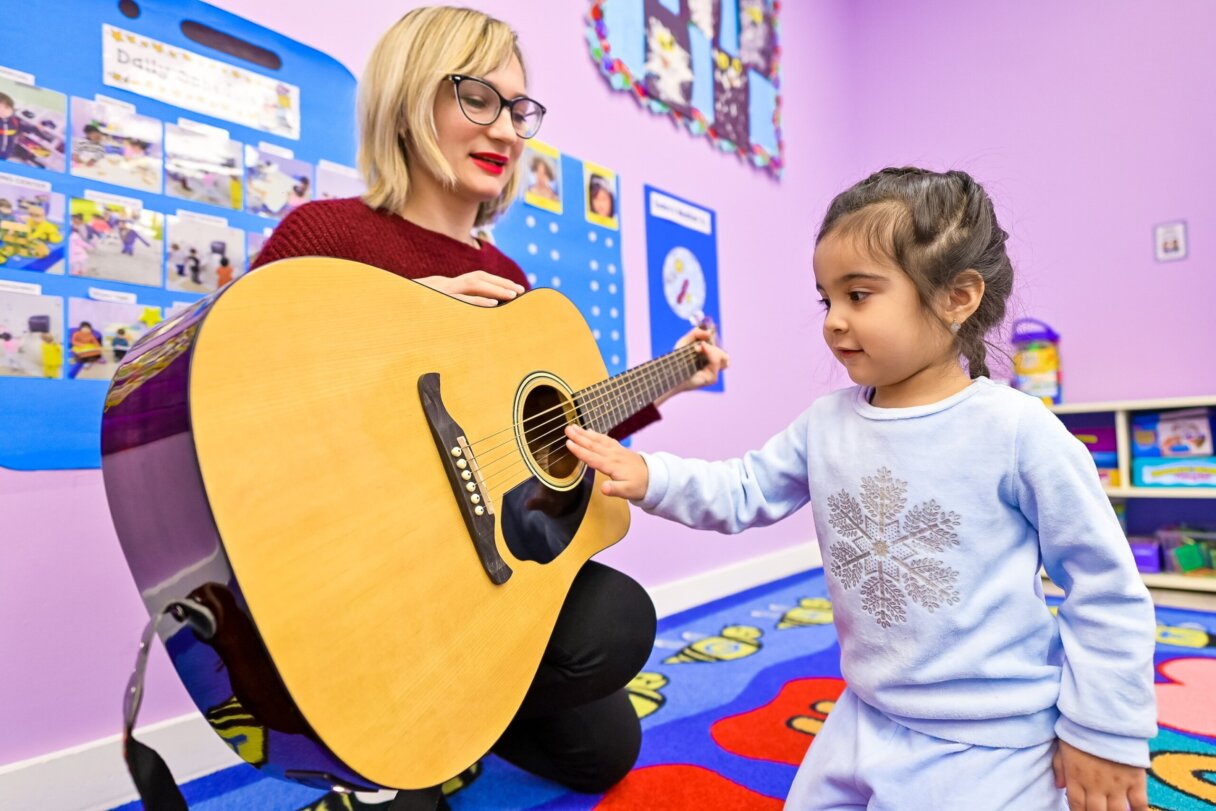
Key Strategies to Boost Self-Esteem
Building self-esteem in young children involves intentional actions and strategies that reinforce their sense of self-worth and capability. Here are some effective methods to consider.
Role of Positive Reinforcement and Supportive Communication
Positive reinforcement is recognizing and praising the little ones for what they did well, no matter how irrelevant it may seem. Such statements support the kid’s interest in what is happening and confirm that they are on the right track. Supportive communication is not just praise, it is also a statement about one’s confidence in the child’s strengths in cases of failure, it is a call to take a step, it is asking the youngster how they feel and what they think about the situation.
Example: Instead of simply saying “Good job,” expand with specific praise like, “I really liked how you shared your toys with your friend today. That was very kind.”
Importance of Setting Realistic Expectations and Celebrating Small Victories
Children best succeed and flourish while pursuing clear, achievable goals. If those goals are too low and easy to reach, the child may not feel any challenge and ability to improve oneself. If they are too high, the child may feel like a failure and become discouraged to the point of giving up. That is why you need to consider the child’s level of development, the abilities in question, and set such challenges that may later be easily internalized and celebrated as one’s stepping stones toward growth.
Example: If a child struggles with reading, setting a goal to read a small book with some assistance and celebrating this achievement can boost their confidence significantly.
Encouraging Independence and Decision Making to Build Confidence
Letting children select from a variety of options and make decisions involving their daily activities and chores helps empower them and stimulates independence. It is not a matter of allowing them to make all their choices on their own, but rather providing them with age-appropriate opportunities to choose. Each decision: picking up a book to read, deciding which shirt or pants to wear, or determining what to do play time, strengthens a child’s self-esteem.
Example: Offering a choice between two snacks or letting them pick out their outfit for the day can foster a sense of independence.
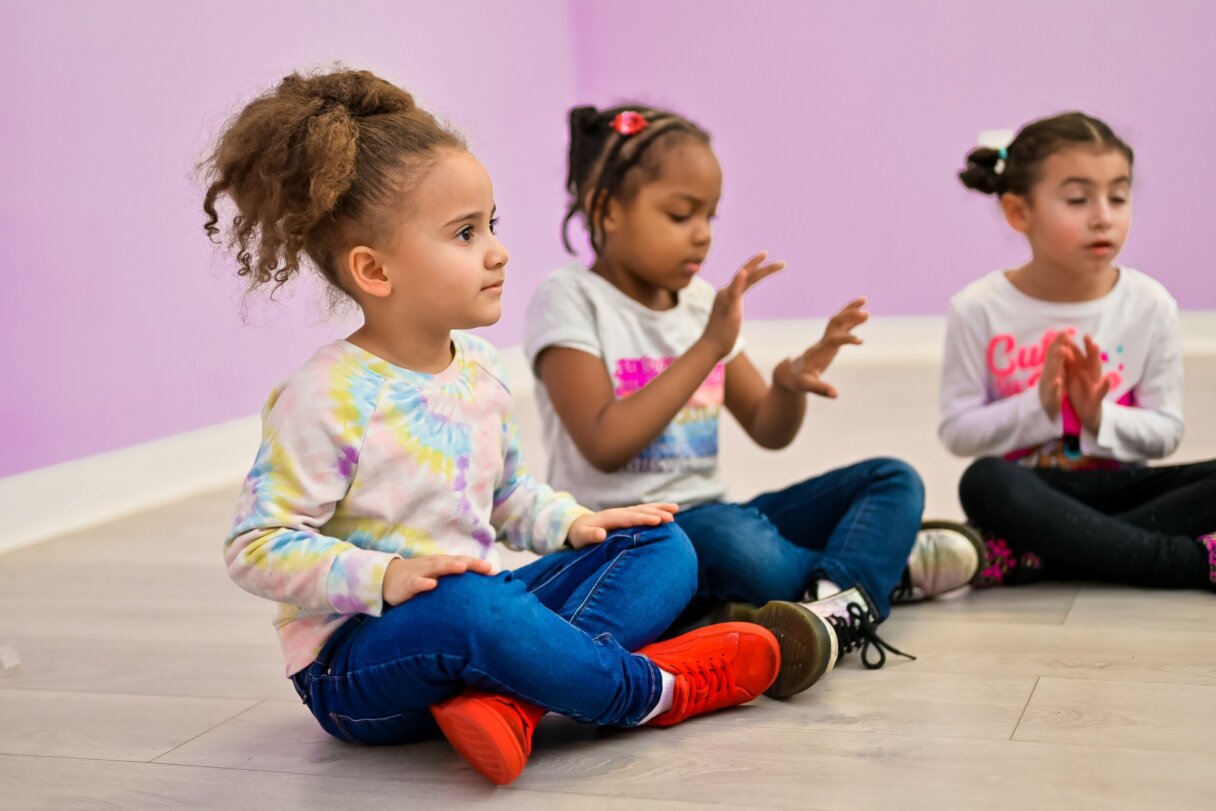
Self-Esteem-Enhancing Activities for Kids
“I Am Amazing Because…” Collage
This activity involves children in creating a visual demonstration of their best qualities and achievements. You will need a large sheet or piece of poster paper and several magazines, stickers, markers, and any other supplies. Ask the children to think about and write down the reasons why they are amazing. Then, let them pick the pictures that may symbolize their strong points and make illustrations if need be. This collage becomes a kind of the children’s recognition board that they can look at every day.
Strengths Chain
A strengths chain is a visual and concrete way to acknowledge personal attributes and accomplishments similarly to the paper chain utilized in decorations. The chain is composed of links, each depicting a strength or something the child is proud of. The children are provided with strips of paper and encouraged to write their strengths or those that have been described to them by others. This may include being a good friend, solving a math problem, or doing the dishes for the family. The children will be required to loop the strips and glue them together in order to build the chain.
Role-Play Scenarios
When they solve different problems effectively, children become more confident in expressing their feelings and selves. One method of exercising confidence is using role-playing exercises of different scenarios where children must provide their response to a compliment, ask for help, or defend their interests in a respectful manner. This can be done in a group, where children should also give their positive feedback to their peers.
Compliment Circles
This activity is a great way to build up children and to show them that they are liked and appreciated. It makes for a positive emulation to the child who, in turn, will try to put as much care and desired impressions into his speech. Moreover, one should learn how to take a compliment with dignity, so it would be nice to teach children that this is an art and show them how to do it right.
Achievement Jar
You could provide each child with a jar that they can keep and use to note any good things they did during the day, nice things others said about them, and anything they could be proud of. You can go through the jars once a week or once a month, and discuss all those little and big achievements. This way, the children can see what they said about themselves and what others said about them, which can be extremely impactful.
Educational Tools and Resources
Self-Esteem Worksheets
Worksheets are a good and useful type of prompts for children to speak about their feelings and reflect on their benefits. They help to focus on particular self-discovery in a playful form. Some kinds of worksheets are perfect for this purpose:
- “All “about me” collection of worksheets where children are instructed to write what they love and what they dislike, what they are good at, and what they dream about .
- “I am special because…” sheets where they need to enumerate the ways or the unique bits, for example, by their appearance, by number of friends, by being good at dancing. Why did they make the others smile.
- Feelings and situations, helping children join and learn to recognize situations when they feel good, bad, uneasy, well-done, and so on. Responding, help them name a piece, for example, “How should you cheer yourself up?” For the classroom or home use, these diverse worksheets help children reflect upon the results of their answers.
Self-Esteem Books for Kids
- “I Like Myself!” by Karen Beaumont: Illustrated vibrantly to captivate young readers, this book is all about self-acceptance and celebrating one’s own uniqueness, no matter what others might think.
- “The Dot” by Peter H. Reynolds: This story inspires children to be brave in expressing their creativity and shows the power of a little encouragement.
- “Incredible You! 10 Ways to Let Your Greatness Shine Through” by Dr. Wayne W. Dyer: Designed for kids, this book provides simple, positive statements that can help children learn to feel good about themselves.
- “Stand Tall, Molly Lou Melon” by Patty Lovell: Molly Lou Melon is small and not quite like her peers, but her grandmother has taught her to celebrate her individual traits. This story is about embracing who you are and flourishing despite challenges.
- “Beautiful Oops!” by Barney Saltzberg: This book teaches children that making mistakes is okay and often, mistakes can turn into something beautiful. It’s a wonderful metaphor for life and encourages self-forgiveness and creativity.
Conclusion
Developing a strong sense of self-worth from an early age is not an activity that is merely beneficial for young children—it is essential. More than any other, perhaps, a healthy level of self-esteem promotes and accompanies holistic child development. In other words, it plays a vital role in inculcating readiness for engaging with the challenges of the surrounding world and the other children and adults that inhabit it.
The range of tools that can be utilized at different levels, from the simplest principles for interacting with a child daily to the innovative educational apps for tablets, has been far too vast and far too varied to be anything less. Therefore, it is important that all educators and parents commit to them permanently. Not everything can be an innovation, but each small act of acknowledging a little child’s achievements, no matter how trivial, participation, or presence is a small investment in their self-esteem.
The Little Scholars Daycare
Learn how you can be part of a brighter, more confident future for the children at Little Scholars Daycare. Look at our programs, resources, and community activities that network the empowerment of every child and be ready to help. Join us for a new future and commit yourself to a mission of significance where all children are inspired, feel competent, valued and ready to take on the world.

